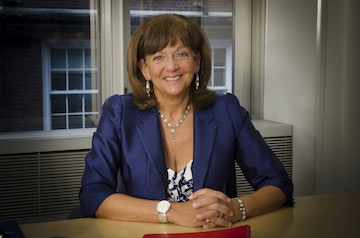Confidence in politicians has taken a knock lately. Perhaps they would welcome the chance now to redeem their reputation and demonstrate they can be trusted to uphold important promises made to their constituents.
The House of Lords has given MPs an opportunity to do just that, in relation to MP's vote to abandon the Pensions Triple Lock Conservative Manifesto commitment to increase State Pensions at least in line with average earnings each year.
The Commons’ decision was based on flawed information and accepting and passing the Lords’ amendments on 22 November would retain the vital earnings protection.
MPs were told if they did not remove the Triple Lock earnings link from Britain’s 12m pensioners, State Pensions would have to rise by an ‘unaffordable’ 8.3%, costing over £5bn. They were also assured that the 3.1% September CPI would still protect pensioners against rising living costs. Both these statements are false.
Yes, the usual Average Weekly Earnings number was artificially high due to Covid-19 labour market measures last year but the Government can apply an adjusted figure for 2022-23, to account for pandemic distortions, with lower Exchequer cost, while still honouring the Triple Lock. That is what the Lords' amendments recommend.
A 3.1% increase will certainly not protect pensioners' living standards – it represents a real terms cut in their income. The Budget confirmed this.
The Chancellor said 'inflation in September was 3.1% and is likely to rise further' while the OBR expects CPI to reach at least 4.4% next year, perhaps peaking around 5% but possibly hitting, “the highest rate seen in the UK for three decades.”
The Budget also undermined affordability arguments for removing the earnings link. Money was found for huge additional spending and tax cuts. What does it say about our country’s values if we short-change the elderly to fund reductions in alcohol duty and bank taxation?
But this should not be about money – it is about people. Millions of older citizens who are struggling, often unseen and alone, in 21st Century Britain on the lowest state pension in the developed world.
Pensioners are not all well off. Some are - but millions rely on State payments for most or all of their income. State Pensions are part of our country’s welfare state social contract. Being unfunded, younger generations must pay for current pensioners and, with an ageing population, the cost will rise. Yet, this is the latest in a long line of decisions to take huge sums away from pensioners when money is tight, such as increasing State Pension ages and devaluing inflation uprating from RPI to CPI.
Two million pensioners already live in poverty and even before the pandemic poverty levels were rising. Over half of single pensioners are in fuel poverty, with 13% in extreme fuel poverty. A 3.1% uprating, when household fuel costs and food prices are rising sharply will create more serious hardship.
History reveals the damage of removing the earnings link. In 1979, the Government abandoned uprating annually by at least earnings. Basic State Pensions were then worth 26% of average earnings, but then fell to just 16% by 2010. The Triple Lock increased Basic Pensions to 19% of average earnings, yet even the full new State Pension and Pension Credit Minimum Income Guarantee for the poorest pensioners, remain below the 1979 level.
MPs could still honour their earnings protection promise. The Government may consider this a fait accompli, and perhaps the Whips will win the day, but if they plough ahead with this real terms pension cut, they will probably face a huge pensioner backlash as household bills soar. It’s not too late. I believe pensioners deserve better.
Baroness Ros Altmann is a former Pensions Minister and is one of the UK’s leading pensions experts and pensions campaigners. Recently she led a successful revolt in the Lords against the Government's attempt to drop the Pensions Triple Lock for one year to save money. The bill has now been sent back to MPs for consideration. She is a governor of the London School of Economics and was director general of the Saga Group from 2010 to 2013. She joined the House of Lords in 2015 and has won a number of awards for her campaigning.
@rosaltmann

